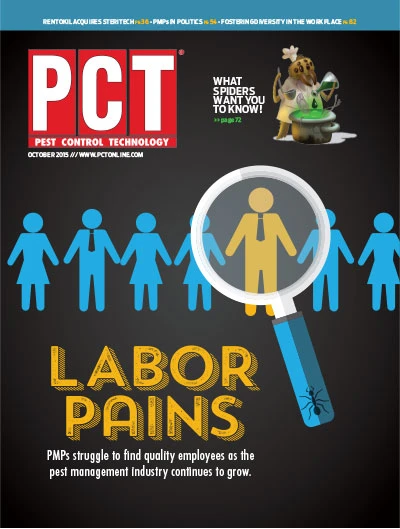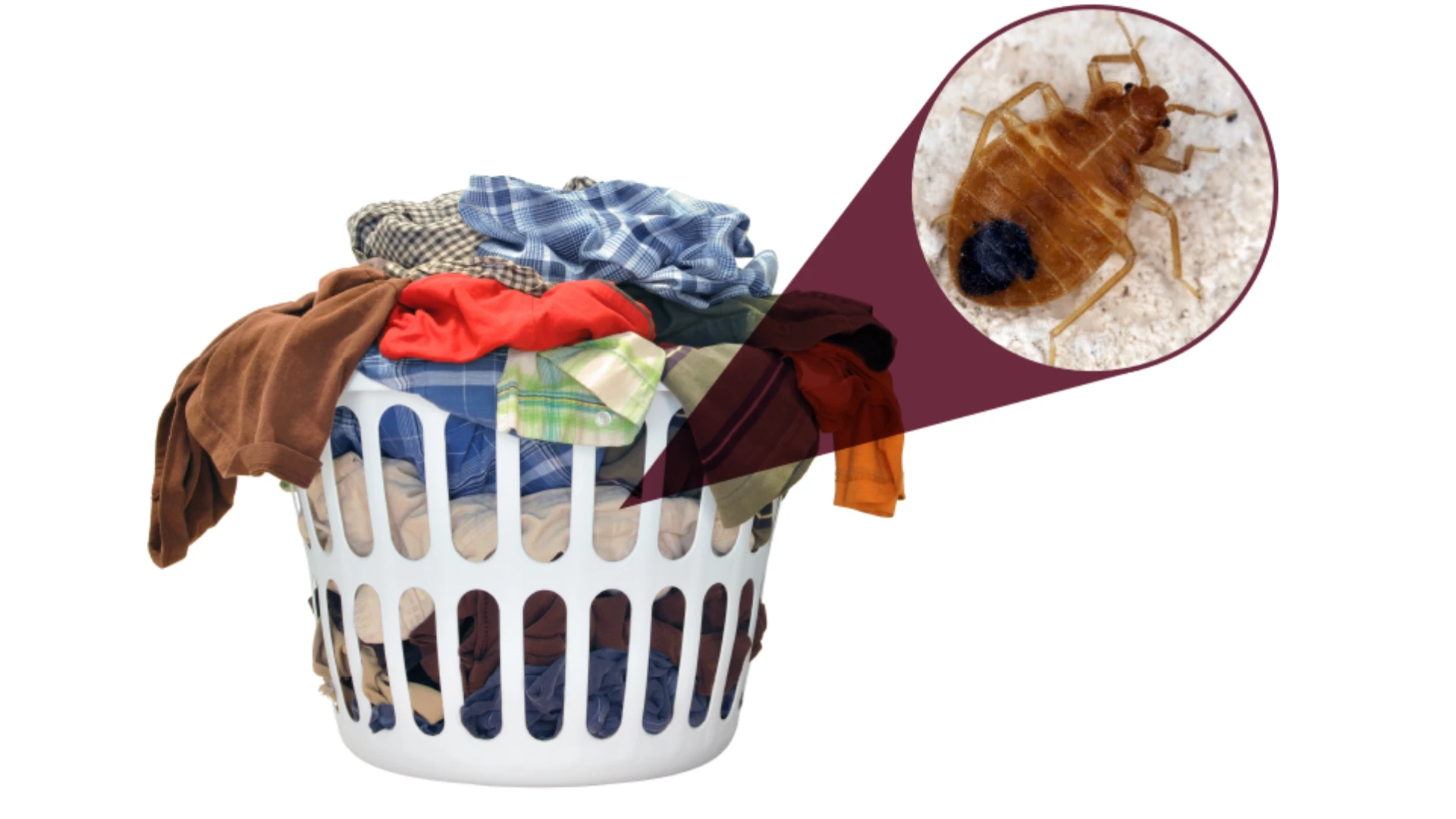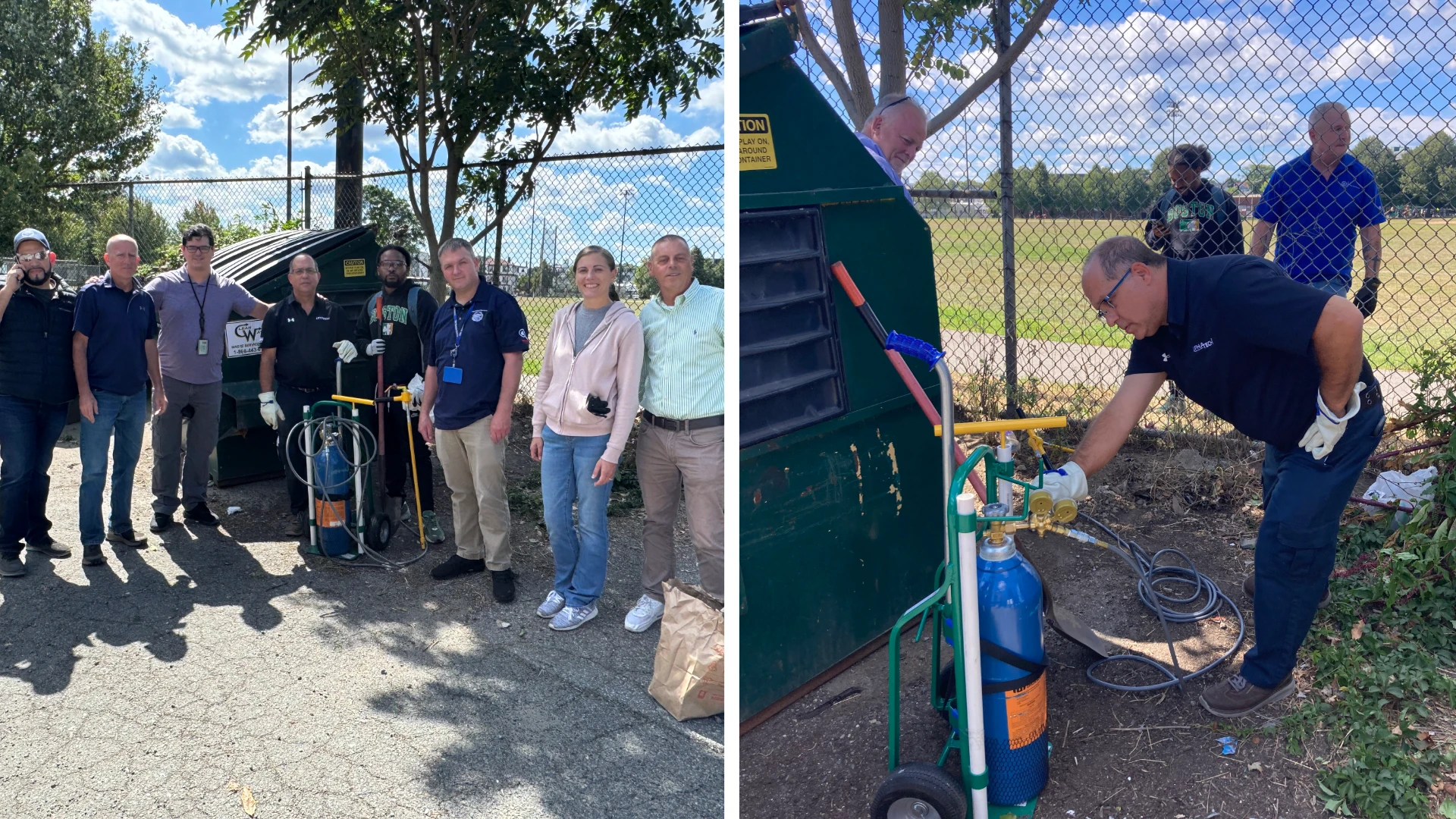 Research laboratories have produced many of the pest management industry’s most effective and trusted solutions for preventing and eliminating insects and other pests from harming people and property.
Research laboratories have produced many of the pest management industry’s most effective and trusted solutions for preventing and eliminating insects and other pests from harming people and property.
The importance of the work done in entomology labs across the country can’t be underestimated or taken for granted. It is important work but there comes a time when science must be put to the test on the front lines of the pest control industry.
Dr. Ron Harrison, technical director at Rollins, has long been an advocate of applying science beyond labs and into the real world of pest management that feature locations that definitely do not qualify as “clean rooms.”
A Utah-native, Harrison has enjoyed a diverse personal and professional career that has included stops in the academic and research arenas, as well as his current role leading the technical and training efforts of the United States’ largest pest management provider.
“Working in academics as a professor and a researcher was rewarding but I was looking for a change of pace and the chance to apply science to the real world,” says Harrison. “An opportunity came up with Rollins to apply science and seek results that provide a positive impact for consumers.”
The transition from laboratory to crawlspace was not as difficult as one would think and Harrison found great satisfaction in seeing concepts yield both the desired pest management and financial results.
“Everything is based on a result in the business world and I enjoy the challenge that it presents to find the right solution to a pest problem,” says Harrison.
Seeking solutions is something Harrison has been doing since his days as a boy growing up on a small farm in northern Utah where academic inspiration wasn’t lacking. Harrison’s father was a scientist who worked in soil conservation for the government and his mother a teacher, and there always was a steady stream of studious colleagues visiting their home who spurred young Harrison’s interest in science.
“I was always asking questions of my parents’ friends and trying to find the answers,” recalls Harrison. “It made an impact on me and motivated me to take up science as a career.”
An Unforgettable Experience
After graduating high school Harrison had the unique opportunity to visit Afghanistan and India while his father was working overseas. This was in the late 1970s before the Russian invasion and Harrison discovered a country that had not yet been ravaged by war and whose people enjoyed a simple but conservative life with a strong emphasis on agriculture.
 “It was an amazing experience to work with and help educate farmers who were following practices handed down from multiple generations,” says Harrison. “It was also my first time seeing an extreme level of poverty but there was a pride and spirit in the people that left a lasting impression on me.”
“It was an amazing experience to work with and help educate farmers who were following practices handed down from multiple generations,” says Harrison. “It was also my first time seeing an extreme level of poverty but there was a pride and spirit in the people that left a lasting impression on me.”
After spending two years in Japan as a missionary, Harrison returned to the U.S. and enrolled at Utah State University and earned a bachelor of science degree in plant science and agronomy. With degree in hand and a desire to continue his career in education, Harrison traveled across the country to the University of Georgia.
While working on his master’s degree in horticulture Harrison worked on shared research projects at the university’s research stations where he was introduced to entomology. “Until then I had a very plant-based background but during the research projects I was encouraged to look beyond just agricultural pests to urban pests,” says Harrison. “It certainly allowed me to see things in a broader scope.”
Harrison continued his educational pursuits at Georgia and earned a Ph.D. in entomology before doing post-doctorate work in the United Kingdom and at the University of Florida. While at Florida a teaching position opened up at Mercer University in Macon, Ga., and following the influence of his educator mother, he accepted the position.
Throughout his tenure, Harrison, who is currently an adjunct professor at Mercer, has been responsible for the instruction and development of the science curriculum and laboratories for traditional and non-traditional students, and managed a staff of 15 adjunct professors and instructors.
While he enjoyed being in the classroom and seeing students develop an appreciation for science, Harrison found himself looking for a new challenge — and he found it at Rollins.
A World Full of Pests
Developing training and service protocols for a global service provider with nearly 8,000 employees in countries spanning the globe is not an easy task but one Harrison has thrived at since joining Rollins in 1998.
Dedication, work ethic are No. 1 pieces of advice
When asked what advice he would have for aspiring leaders in the pest management industry, Dr. Ron Harrison says dedication and a demonstrated work ethic are a hard-to-beat combination.
“Pest management is not an 8 to 5 job especially if you are working with commercial clients whose operations run 24/7, 365,” says Harrison. He encourages would-be leaders to expand their realm of thinking and see the broad scope of the industry and consider the needs of the consumer.
“Don’t be afraid to explore or go beyond your area of expertise or interest to make a discovery or find a better way to solve a customer’s problem,” says Harrison.
“In the United States we have national customers with internal influence like a major hotel company with operations in more than 100 countries around the world. Its guests expect the same experience whether they are in Omaha or London,” says Harrison. “The products we use are different, the cultures are different but they want the same end result — no pests.”
Harrison says Rollins works closely with manufacturers to identify the products it uses internationally and that his team is constantly challenged to find solutions that work for specific geographic environments and cultures.
For example, in the United Arab Emirates (UAE) the government provides pest control services at no charge for residents but Rollins’ technicians are not allowed to service a home if female residents are uncovered.
Rollins also employs a diverse workforce overseas and blending different religions, languages and cultures is part of the daily routine. “In the UAE many of our managers and technicians come from other Arab nations and have degrees,” says Harrison. “Developing training programs that factor in diversity and can be done either in-person or long distance presents a very unique set of circumstances.”
What makes the training and development successful for Rollins both here in the United States and around the globe are the human experiences and interactions. Harrison has seen people from totally different ends of the geographic map reach out and unselfishly share their knowledge and experience for the betterment of the end product.
“The human touch is so valuable in education and training, and it is very impactful when coming from a leadership position,” says Harrison.
He cited the development of the Rollins Learning Center by R. Randall Rollins, chairman of the board of directors for Rollins, as a demonstration of selfless leadership.
The 26,000 plus-square-foot facility in Atlanta includes simulated environments for hands-on training during classroom instruction for branch manager trainees, manager development, commercial account management, and residential sales inspector classes.
“He made a business decision to support directed learning unlike anything that had been done previously and the results speak for themselves,” adds Harrison.
A Changing Role
The role technical services play in the industry continues to evolve and goes well beyond just telling customers what pests they have. The increased interaction with consumers includes a stronger focus on customer service as well as corporate marketing departments to share expertise and know how consumers are seeking pest control services.
“One of Ron’s strengths is the strong moral compass from which he operates,” says Dr. Michael Potter, professor at the University of Kentucky, who has known Harrison for more than 20 years. “He is one of those people who has the pulse of the industry because of his interactions with a wide array of people from technicians to researchers.”
Potter says Harrison’s position at Rollins makes him a window into the operations of the pest management industry for outsiders including consumers, regulators, media and academics.
“He is a steady voice who balances the business and technical needs of the company nicely, and he lets the facts do the talking,” adds Potter.
“At Rollins we showcase our experience in our marketing campaigns and that leads to inquiries from consumers on how and why we do the things we do,” says Harrison. “We must be more exact with our solutions because our work impacts our branding and consumer opinion.”
It also requires being a step ahead when it comes to identifying the next generation of products and technology that will eliminate pests in the homes and workplaces of the future.
An example is Rollins’ work with an Arizona-based company that is developing a non-lethal rodent sterilization technology. Harrison learned of the effort after hearing a story on National Public Radio and has been in contact to determine how the technology could help Rollins’ clients.
“There are always new pests coming and our role in technical services is to not only live in the here and now but to identify the needs of the future,” says Harrison. “Taking risks is part of the job, and listening and applying the science to the field is how you get it done.”

Explore the October 2015 Issue
Check out more from this issue and find your next story to read.
Latest from Pest Control Technology
- Rentokil Terminix Expanded in Key Markets with 2024 Acquisitions
- In Memoriam: Joe Cavender
- Certus Acquires Green Wave Pest Solutions
- Liphatech Adds Alex Blahnik to Technical Team
- Do the Right Sting: Stinging Insect Identification, Management, and Safety
- VAGA's 8th Annual Veterans Thanksgiving Appreciation Dinner
- Clark's Blair Smith on the Response to Increased Dengue Fever Cases in Southern California
- WSDA, USDA Announce Eradication of Northern Giant Hornet from U.S.





